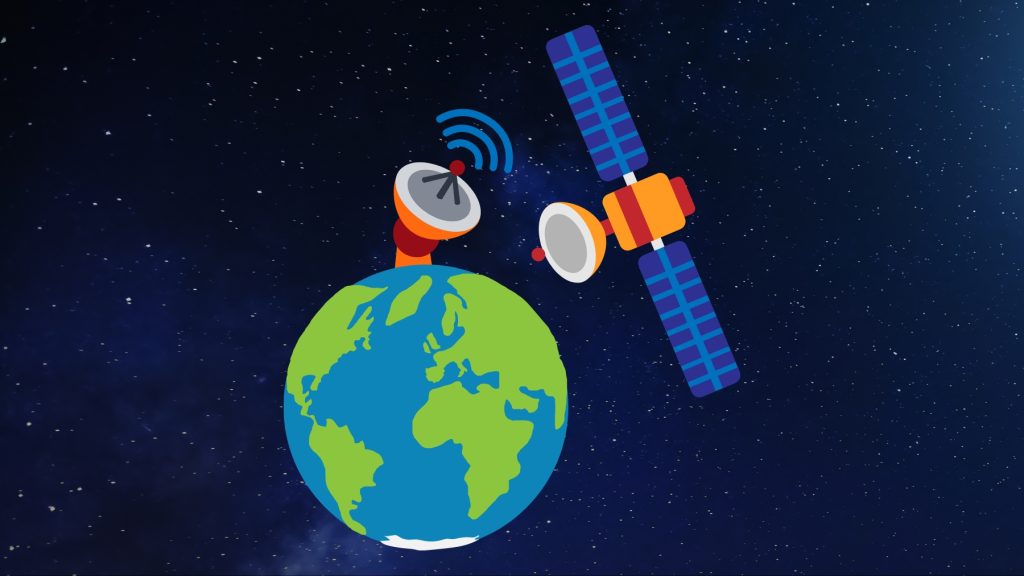
Former Disney star Bridgit Mendler is a new ground station startup’s CEO, planning to provide a more democratic option for satellite data transmission.
- The company has secured an impressive $6.3 million in seed funding from major venture capitalists.
- Northwood Space will focus on satellite data transmission, addressing challenges such as signal delay, weather interference, and limited bandwidth.
Former Disney star Bridgit Mendler has announced her new satellite data startup, Northwood Space, promising to reshape space communications.
The company has secured an impressive $6.3 million in seed funding from major venture capitalists. The list includes high-profile investors:
- Founders Fund, which is known for early investments in companies, most notably SpaceX and Palantir.
- Andreessen Horowitz, which backed companies like Facebook and Airbnb.
- Also Capital, which invests in tech companies with the potential to disrupt their industries.
The company will focus on satellite data transmission, establishing a reliable connection between Earth and space. Our current satellite communications face many challenges in terms of signal delay and decrease of strength as it travels, weather interferences, limited bandwidth, and other security concerns.
To counteract all of that, the space startup plans on mass-producing ground stations, which are an important link between our skies and our terrestrial infrastructure. Northwood Space will prioritize rapid production and deployment. Fun fact, these ground stations are also called teleports. If only humans could actually teleport…
Mendler told CNBC that they envision “a data highway between Earth and space.” She then goes on to explain why they didn’t do something more extravagant like a rocket or a satellite, “For me, why the ground-side matters is because it actually is about bringing the impacts of space home to people.”
They are planning their first test connecting to a spacecraft in orbit for later this year.
The story is quite inspirational. She went from a Disney actress and singer to graduating from prestigious universities and getting a Ph.D. And now she’s the CEO of a budding space startup that looks at filling the gap in a promising industry. She’s an inspiration to all who have grown up watching her.
But that’s not what we’re here for, are we now?
Despite the presence of these prominent venture capitalists giving credence to the future financial success of the newborn company, one cannot but notice if it will be viable for Wall Street.
Lately, we’ve seen a lot of space-focused moves. Some of them are more threatening than others. Northwood Space targets a specific segment of that market. It addresses an obvious gap and puts itself in the direct line of sight of what is basically the future here on Earth: the Cloud. Instead of cloud providers, like Microsoft and Amazon, building their own teleports, they would cut costs and time and hire the startup. Afterall, Northwood Space is working on mass-producing the ground stations at lower costs through innovative design and manufacturing methods.
The industry itself is witnessing a rising demand for data transmission, the miniaturization of satellites, and growing interest in constellations. So, it is safe to assume that they are on trend with their target customer.
However, that isn’t to say they won’t face competition from other companies offering ground stations, satellite-based solutions, and traditional communication infrastructure providers. Nonetheless, considering the nature of the company and its industries, the potential for collaborations is high. Take Starlink, for example. If Starlink decides to further expand in rural, rather isolated, areas, Northwood ground stations could act as local hubs. So, the future of the space startup seems to promise an ecosystem for lag-free and uninterrupted data transmission between Earth and space.
Now these stations can be for both data capture and its release. But for their ground stations to be able to be effective as a third party in space communications, they need to get in clear agreement with network operators and content providers. It would definitely be a complex situation but there is a place for these services, and they would help complete the ecosystem.
Regardless, investors might see value in collecting data. Now, that would definitely raise privacy concerns. But transparency about the company’s data practices and explicit user consent should take care of that. They could always leave personal data alone and focus on network traffic and user trend analysis.
What investors need to keep in mind is that the aim here is not to compete in the big leads. They want to bring the big leagues down to earth a little but provide the same services at lower costs so they improve accessibility and coverage. From their conversations about the topic, they initially built their antenna, their prototype, from random stuff they could find at Home Depot.
We’ll have to wait and see…
Inside Telecom provides you with an extensive list of content covering all aspects of the tech industry. Keep an eye on our Tech sections to stay informed and up-to-date with our daily articles.